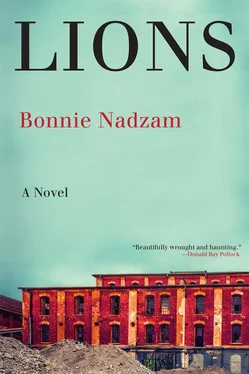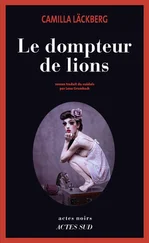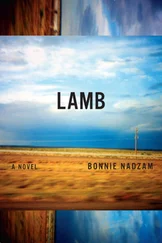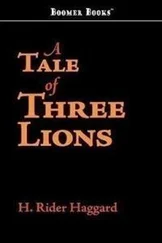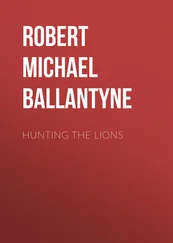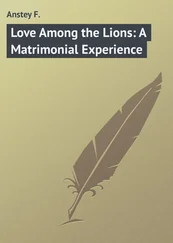“Good for you,” the trucker said to Gordon. “Welding’s good work.”
“Gordon’s not a welder,” Boyd said. “You don’t want to be a welder.”
“Just don’t get stuck here doing it,” the trucker said.
May pushed two white paper bags into a white plastic bag and knocked a row of glasses onto the floor. She put her head down and her fingers to her temples.
“Sorry,” she said. “Sorry. I’m off-kilter.”
Gordon walked behind the counter. “Here,” he said, and pulled out her chair. She sat as he put her coffee cup in her hand, then swept up the glass.
“I’ll get out of your way,” the trucker said. “Liked the eggs, ma’am,” he called out in May’s direction, and put a five-dollar bill, folded lengthwise, down on the counter. He put his ball cap on his head and nodded at Gordon, then Boyd. “You should go back,” he said.
“What, to church?”
“‘Through Him and for His name’s sake, we receive grace to call people to the obedience that comes from faith.’” He tipped his hat at May, and the bells strung on the door jangled as he stepped out into the street.
“No need to go back Boyd, you just hang around the counter all day and you’ll get church enough, trust me. Seems their belief grows in proportion to their disappointment. I will never understand it.”
Boyd wiped his mouth and set his paper napkin on his empty plate. “That’s what people get for their high expectations.”
“Don’t put your hand in the trash,” Gordon told May. “I put the glass in there.”
“I’ll send Leigh over with something for dinner,” she told him. “Something hot. For you and your mother.”
But that was the last anyone saw of Gordon for six days.
“What do you mean he’s gone?” Leigh asked at the front door. Glassy-eyed and drawn, Georgianna stepped out of the doorway onto the little concrete slab that served as a doorstep, wearing the same shirt she’d worn the day before, a small kit of some useless things for John in her hand; she was just back from the clinic. The sun was high overhead, the shadows around the two women knotted up small and tight in the grass. “Where did he go?”
Georgianna drew her lips into her mouth. She shook her head. “I don’t know.”
“How can you not know?”
Georgianna sat on the stone step, her shoulders slumped. She put her face in her hands. Leigh sat beside her and suddenly felt sick. Then she understood. It was John, of course. Hadn’t she already known? She pulled her knees in close and lowered her head onto her arms. Her throat tightened, forcing her breath high up into her chest. John Walker, never again. Never again with his hair floating up in the wind around him. Never again with peach pie. Never again with storm windows. For a moment she had a picture of him, his back turned away from her and his body small against a rocky, white field as pocked and dusty as the surface of the moon, then she pushed it out of her mind, pulled a chain and the lights came up and she was in the diner serving fried potatoes and hot black coffee and bright yellow eggs, saving her tips. Fifty-seven days, $812.
A breeze rattled the metal screen door behind them. In the high grass and weeds across the dirt road, red-winged blackbirds looped against the blue sky. By early August, the heat would drive all the birds away, and the Queen Anne’s lace would shrivel in the sun. The white phlox would never bloom at all, and half the town would be gone, and all the old folks, and the last of the children. It was as if Gordon and John had taken all the familiar world with them that day they left.
Boyd and May pulled up in his big, black pickup and May rushed from the cab to Georgianna and embraced her. Boyd walked across the yard with his head hanging.
Don’t make any sense, they said in town.
That man was healthy as could be.
And young. What was he, fifty-five?
Came out of nowhere and took him.
Good things happen to good people, they said, and shook their heads.
He was irresponsible, they said.
Stubborn.
Backward.
Never saw him in church.
Kept his family in poverty.
Boy’s the same way.
He’d best take this as a sign.
All night Leigh stayed awake with the light on, turning over the shiny, perfumed pages of a magazine. If she drifted off, John was greeting her in the shop, setting a cold hand on her upper arm and smiling, and asking for a sandwich, and what had she been reading? He could recommend a good cowboy book about true love and good men and mystery, but it was going to cost her.
When she was six and seven and eight, and home alone while May ran the diner, Leigh would cross the yard between her house and the Walkers’ and crouch in the grass when the front room was lit, and watch the three of them gathered together, Georgianna and Gordon playing gin rummy or blackjack on the braided rug, and John in his reading chair with his small glass of whiskey on the end table beside him and some old paperback open in his clean, calloused hands. Sometimes, one of them heard her out there, and John or Georgianna would bring her in, and after cards and cocoa put her to bed on the floor in Gordon’s room, in his favorite G.I. Joe sleeping bag, covered with the orange and brown living-room afghan. Then sometime just before dawn, John would carry her like a doll in his arms back to her own house. On some of those mornings, she lay in bed and heard John start his truck and drive away, and the truck would be gone for days in a row. When he came back he’d point without a word at his cheek and she’d rush to give him a kiss, and they’d all go together to the diner for dinner. Mashed potatoes and gravy, canned string beans, sugar pie.
“Where’d you go?” she’d ask.
“Looking for gold.”
“Did you find some?”
“Mountains of it, and guess what? It doubles when you give it away.”
“Can I have some?” she’d put out her hand and he’d snatch it, and she’d squeal, laughing.
“That’s the catch, Miss Ransom. You can’t ask for it.”
One night, two, then three nights and still no Gordon. Outside the Lucy Graves the earth shimmered. New crab apples baked on their branches and fell like stones. A yellow dish of lawn circled the base of each tree. At night in the distance, across the road and a flat pan of dirt so hard it glittered, heat lightning flared. By day it was ninety-nine, then a hundred, then a hundred and six degrees. Ragged cowbirds perched on the rusting spools of fence wire. The house windows and metal gutters blazed. It was still only June.
Leigh ran her fingers through her hair. Drank a Coke at the empty lunch counter, looking out across the empty street. Pressed the cold, sweating glass to her cheek, then inside her skirt, against her thigh. Across the street a stiff, hot wind moved the fingers of a dead cottonwood against a sky so blue it made the backs of her eyeballs ache.
She couldn’t bear a whole summer of this. So hot, so bored. So angry she could feel her heart beating in her forehead.
She turned restlessly on the stool toward the kitchen and saw John on the pale, empty moonscape. She turned the other way, toward the street, and saw Gordon walking up behind him.
The sun was too bright. Her stomach hurt. Summer was terrible. Lions was terrible. Her whole life she’d hated it, and Gordon loved it. She knew he did. He was the worst. And she knew exactly where he was, she could see it all. Eventually he’d tell her, too, because he told her everything. Right in line with John’s directions, Gordon would’ve started the old Silverado, left the clinic right after John finished talking, and followed an unpaved county road that cut exactly north between the Altons’ field to the west and the Jorgensens’ to the east.
Читать дальше
